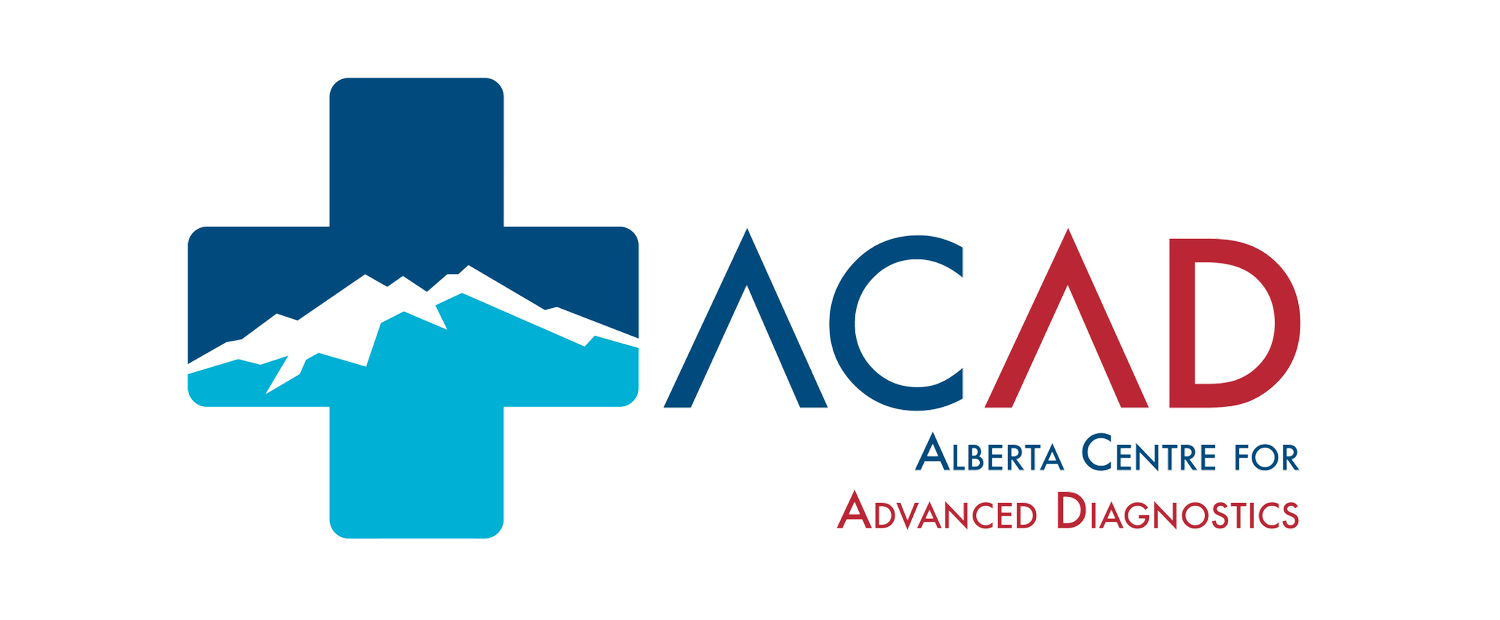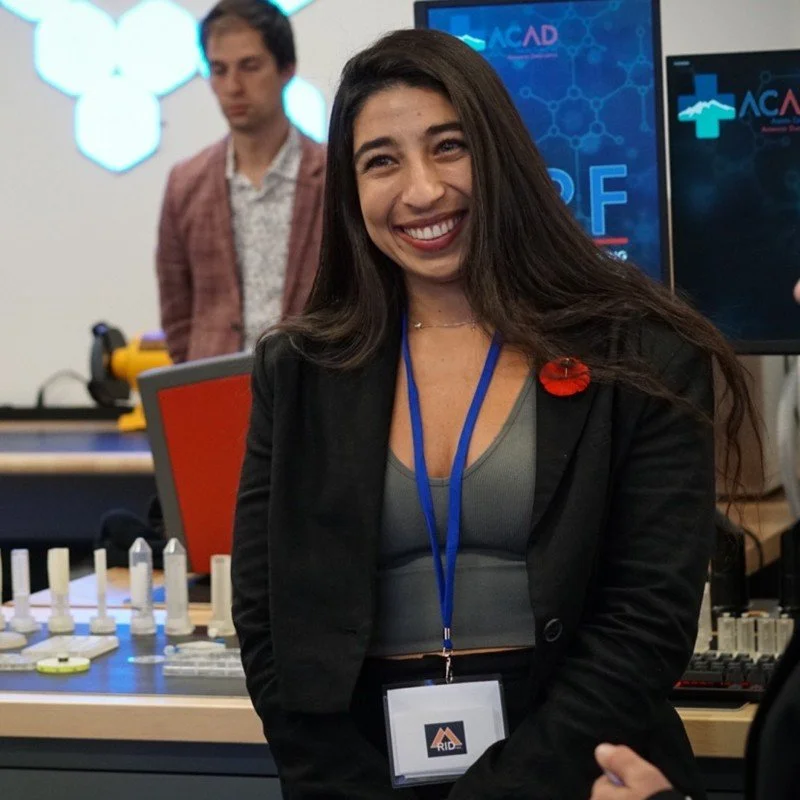APEX Access Program
The APEX Access program empowers the next generation of leaders in health diagnostics through targeted mentorship, hands-on training, and a national network designed to accelerate career growth.
Sign up for our mailing list to learn about the latest opportunities in the APEX Access Program.

Why?
Our Mission
Our mission is to provide a strong platform for emerging professionals to pursue research and leadership roles in cutting-edge healthcare diagnostics technology development through mentorship, hands-on training, and access to a supportive network.
>50
The APEX Access program has enabled over 50 professionals launch careers in both academia and industry.
APEX Access Programs
APEX Access Mentorship Program
The APEX Access Mentorship Program connects students and early-career professionals with experienced leaders from various professional backgrounds. Through career-focused discussions, mentorship, and skills-building workshops, this program offers valuable insight into research pathways, industry opportunities, and leadership development in the field of healthcare diagnostics.
Our Fall/Winter 2024–2025 cohort recruitment has wrapped up. Register below to stay informed about the next cohort launching in Fall 2025, or contact us for more information.
Program Overview
This is a hybrid 8-month program featuring monthly career conversations with mentors across Canada and the US. Each semester, participants will take part in professional development workshops and are encouraged to engage in ongoing dialogue through our online community.
Mentors
We’d love to learn more about you!
Kindly fill out the form below to join our mentor recruitment portal and help shape the future of health diagnostics through guidance and connection.
Gavin Head
State-of-the-art rapid detection of bacteria in hemodialysis patients system
Julia Adug
Isotope tracing alternate carbon sources, acetate and lactate, in the metabolic pathways of Neisseria gonorrhoeae
Mentees
Ready to grow your career in health diagnostics?
Apply below to join our upcoming APEX Access mentee cohort—we’d love to learn more about your goals and how we can support your professional journey.
APEX Access Training and Professional Development
The APEX Access program offers a range of training and professional development opportunities tailored to students and early-career professionals in the life sciences. Through a series of focused workshops each year, participants gain practical skills in areas such as collaborative research, grant writing, and career navigation across academic and industry settings. APEX Access also supports professional growth through student research awards and partnerships with community organizations, offering access to educational content, mentorship, and networking within the life sciences ecosystem.
APEX Access Student Research Awards - Summer 2024
Eligibility: Any undergraduate student pursuing a degree in Biochemistry, Biology, Chemistry, or disciplines with a focus on health or biomedical sciences may apply. Students may not hold an APEX Access Award at the same time as another Undergraduate Student Research Award.
Sasha Sharow
Differences between Staphylococcus lugdunensis bacteremia and other CoNS bacteremia
Jasmine Parhar
Metabolic Profiling of antimicrobial resistant Neisseria gonorrhoeae aconitase mutants
Student Reflections on their Research Experience
-
My research experience with the Lewis research group has been profoundly enriching, equipping me with a diverse set of skills and a deep understanding of the world of academia. Working in the lab allowed me to further develop my laboratory skills to a point that I am extremely comfortable with designing and running my own experiments with accuracy and safety. During my time in the lab I got to work with so many brilliant people that helped mentor me through the summer and provided excellent feedback and advice. I feel extremely confident going into my third year of my undergraduate with the skills I have learned, and hopefully I will be able to apply some of them to my future courses. I couldn't be more grateful with the opportunity that the Lewis research has group provided me.
-
I had an enjoyable experience doing research over the summer. I performed isotope tracing experiments on Neisseria gonorrhoeae using 13C-acetate to elucidate exogenous acetate utilization. These experiments helped me practice and improve the lab skills I will need for my future as I enter into a master's program. This experience allowed me to further familiarize myself with growing this fastidious organism, which will enable me to continue working with this organism for my master's project and contribute knowledge about this pathogen. This experience also increased my confidence in being more independent in the laboratory.
-
Throughout this summer, I learned how to code in RStudio in order to perform an analysis on bloodstream infection patients in Alberta. The Lewis Research Group was granted access to patient outcomes, demographics and proteomics data from blood isolate samples of patients infected with a common blood culture contaminant, Staphylococcus lugdunensis. I was tasked to filter this data set and use data visualization techniques in RStudio to determine any patterns that S. lugdunensis may follow when infecting patients. We were able to conclude that S. lugdunensis bacteremia is more serious and has a higher incidence of clinically significant bacteremia than previously reported.
-
The APEX access award enabled me to pursue summer research without having to hold down another job over the summer. By removing financial barriers, the APEX access awards helped me focus on my work and build long-lasting connections with people in my field. I am so grateful to the APEX access program for making this experience possible for me.
This summer I began working on the metabolic profile of antimicrobial resistant aconitase mutant strains of Neisseria gonorrhoeae. These mutations modify antimicrobial resistant fitness by improving their ability to grow and reproduce, understanding the metabolic profile of these strains can help illustrate the mechanism by which fitness deficits are overcome. I worked with a team of scientists to grow four mutant strains each with a missense mutation on acnB (gene encoding aconitase) in addition to mutations that conferred resistance to ceftriaxone, an antibiotic. We found that (1) the growth profile of the mutants is distinct from the parent strains, (2) the location of the point mutations on acnB generated unique metabolic profiles, and (3) the fitness compensation phenotype may be associated with greater energy metabolism via the Krebs Cycle and the Pentose Phosphate Pathway.
Is common sense really that common? How culture shapes us
2024-2025 Educational Workshop Series, facilitated by Dr. Marija Drikic
Have you ever wondered why you get so competitive in board games? Why is your friend always late for that coffee date? Why is that cousin from abroad so rude in responding to your questions? One potential explanation might actually be your cultural background. If you are curious to learn more, join us for a six-part workshop series distributed over 2 semesters. We will delve into how the culture we have been brought up in influences our communication and conflict management.
Each workshop will feature a question to guide our discussions and to start off the series, we will ask “Is Common Sense really That Common?”. We discuss different cultural models and how our cultural background shapes our perceptions of the world and interactions with society.
Workshop Topics
Cultural Models
Verbal Communication and Culture
Non-Verbal Communication and Culture
Conflict Management
Conflict Across Cultures
Motivation and Management
What to expect: Snacks, Games, Group Discussions, Transferrable (Soft) Skills to bring to any job
What not to expect: Lectures, Definitions, DOs and DONTs – Exam style content
Spring/Summer 2025 Dates: TBA
Location: TBA
*participants must attend 2 out of 3 sessions per semester to earn the certificate.
Sign up using the link below to receive an email when our Spring 2025 session opens!
Dr. Marija Drikic is currently on maternity leave. She previously served as the Education Coordinator/Manager and Operations Manager at the University of Calgary, focusing on Metabolomics, Virology, and Microbiology. Originally from Serbia, she earned her BSc and MSc from the University of Trieste and her PhD from the University of Calgary. Marija has contributed to programs such as iGEM Calgary and the APEX Access mentorship initiative. She has also served as a Graduate Peer Coach and led workshops on communication and project management, supporting students in developing professional skills alongside their academic training.
Application for APEX Access Student Award 2025 is now CLOSED!
Please click this link to learn more about the eligibility criteria and the application process!
Please email your completed PDF application with your name to apex.access@albertaprecisionexchange.ca
Deadline: March 31, 2025
Professional Development Courses
Level Up Course by Synergy Scientific
APEX Access is excited to announce our partnership with Synergy Scientific Founder, Dr. Tarah Lynch. We provided bursaries that enabled researchers to attend this course.
Graduate students and postdoctoral scholars receive lifetime access to all future course materials, including a network of professionals from broad range of expertise.
WHY: A lot of the essential life and leadership skills for the next level in your career but are not taught in grad and postdoctoral programs. Although many skills are learned ‘on the job’, the formal training in leadership skills or exposure to different career paths in science is insufficient. Academia is an excellent career choice, but do you feel prepared to effectively manage a lab?
As we all know, the trainee years in scientific research can test our patience and sanity, but you should not be a trainee forever! No more perma-docs!
There are so many career paths out there to explore, so let’s take 8 weeks and create a career strategy, learn important skills and build a professional network of experienced people to help you along the journey.
FULL COURSE OUTLINE HERE.
Past Events and Workshops
-
Non-Verbal Communication & Culture: What’s Left Unspoken?
Body language, facial expressions, and gestures often speak louder than words—but their meanings can vary dramatically across cultures. In this workshop, we’ll examined how different cultures interpret eye contact, personal space, hand gestures, and silence. By becoming more aware of these subtle cues, we can foster deeper connections and communicate more effectively across cultural boundaries. -
Verbal Communication & Culture: More Than Just Words
Have you ever wondered why you get so competitive in board games? Why is your friend always late for that coffee date? Why is that cousin from abroad so rude in responding to your questions? Have you ever misinterpreted someone’s words or felt lost in translation? This workshop session dived into how culture impacts verbal communication, from direct vs. indirect speech styles to differences in storytelling, politeness, and even humor. By exploring these nuances, we can develop better cross-cultural communication skills and avoid misunderstandings in both personal and professional settings.
-
Cultural Models: How Do They Shape Our Thinking?
Culture influences the way we see the world, shaping our values, behaviors, and decision-making. In this workshop, we’ll explored different cultural models, such as individualism vs. collectivism and high-context vs. low-context communication using relevant websites and group discussion. Understanding these frameworks can help us navigate cultural differences more effectively and recognize how our upbringing shapes our interactions. -
Item description
-
Panelists:
Agriculture & Agri-Food Canada
Dr. Sean Asselin – Plant Breeding
Dr. Hector Carcamo – Pest Management
Dr. Jess Vickruck – Beneficial Insects
Alisha Greene – Student Research
Public Health Agency of Canada
Dr. Brent Dixon – Bureau of Microbial Hazards
Dr. Rebecca Guy – Genomics
Dr. Jennifer Tanner - Special Bacteriology
Alberta Public Health
Dr. Tarah Lynch – Genomics & Bioinformatics
Panelists discussed:
What does your day-to-day work look like? Who are your main collaborators?
What are the main steps in the hiring process? What is the application process like?
What are the pros + cons of government versus academic/private sector work?
What do some potential government career paths in your field look like?
-
Panelists:
Dr. Jennifer Geddes-McAlister, Assistant Professor, Molecular and Cellular Biology, University of Guelph
Dr. Tarah Lynch, Program Lead for Genomics & Bioinformatics at the Provincial Public Health Laboratory, Founder of Diversity Scientific
Dr. Mehdi Mohammadi, Co-Founder and CEO of Fluidome, Postdoctoral Associate, University of Calgary
Dr. Keir Pittman, Scientific Writer, Lewis Research Group, University of Calgary
Panel moderator: Anika Westlund, PhD student, University of Calgary
About the workshop: A health-sciences related degree can give you many career options, but often deciding what skills to focus on and where to go next can be a daunting task. Join this panel discussion from the Alberta Precision Exchange (APEX) Access Program featuring four experts in the health sciences who have varied career paths and learn how they navigated career decisions in this broad field. Our panelists Dr. Jennifer Geddes-McAlister, Dr. Tarah Lynch, Dr. Mehdi Mohammadi, and Dr. Keir Pittman have experience in academic, clinical, and industry careers and each followed a unique path to success filled with challenges along the way. Participants will have time to ask questions directly to the panelists and network after the event.
-
with APEX Director Dr. Ian Lewis
Dr. Lewis currently oversees over 30 researchers and $20M in funding across several large-scale research projects that are directly integrated with Alberta’s clinical testing laboratories. In this workshop, Dr. Lewis presented strategies that have helped him successfully obtain large-scale collaborative grants that involve industry partners and internationally recognized research institutions, including Harvard University and the Broad Institute. In this workshop, we also discussed strategies for incorporating meaningful and authentic EDI statements into research proposals.
-
Special thanks to Carly Chan, Marija Drikic, Rajni Pushpker, and Stephanie Bishop for facilitating!
Different perspectives lead to better science and will help us solve complex problems that directly affect the community as a whole. However, the current research system often awards individual efforts above collaborative efforts, thus encouraging a competitive research environment. In this interactive workshop filled with team building activities, we discussed issues related to competitive research environments and strategies for developing an effective collaborative research environment.
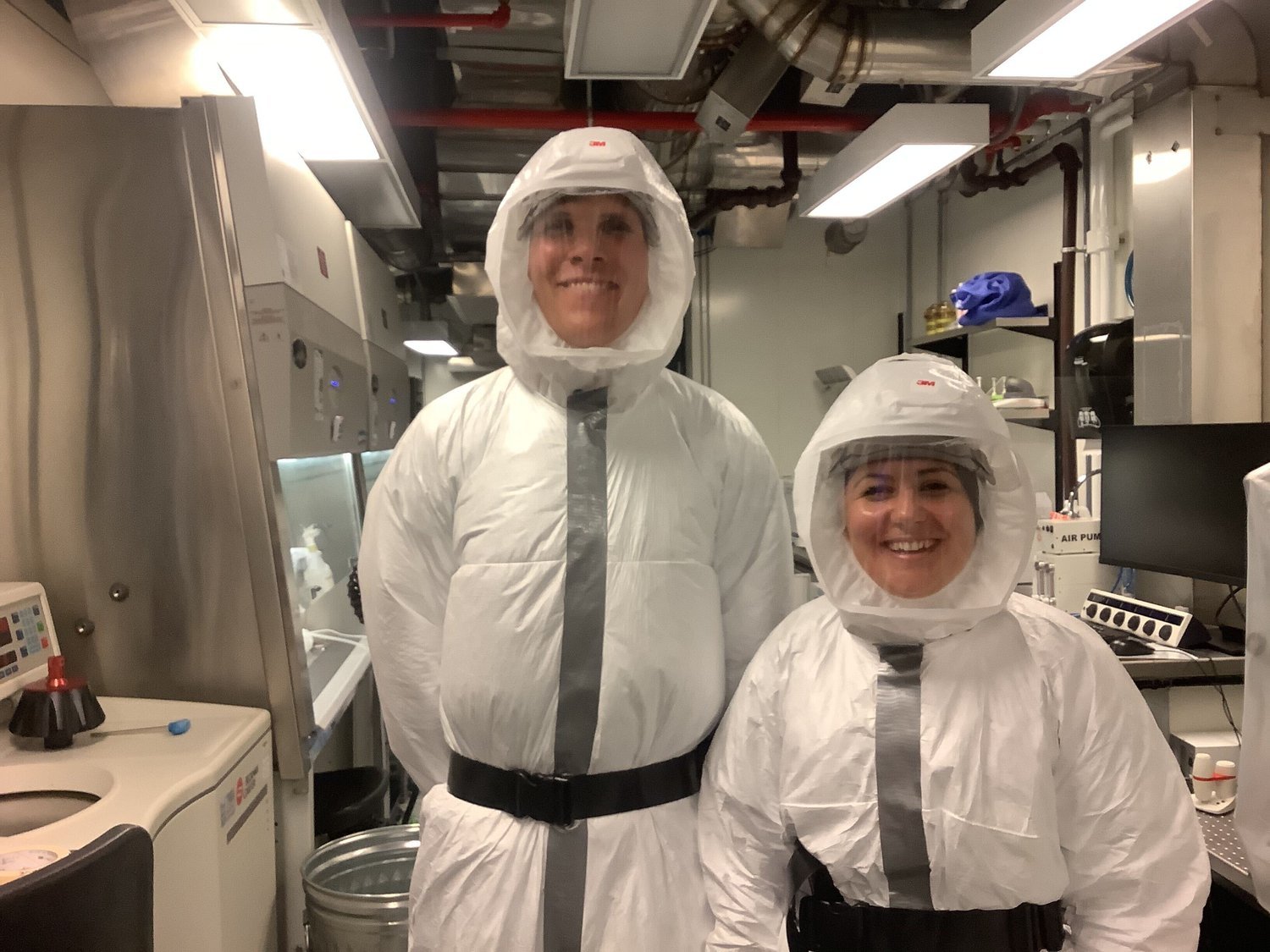
MSc student Spencer Wildman and Dr. Marija Drikic conducting research on SARS-CoV-2 in the CL-3 facility at the University of Calgary
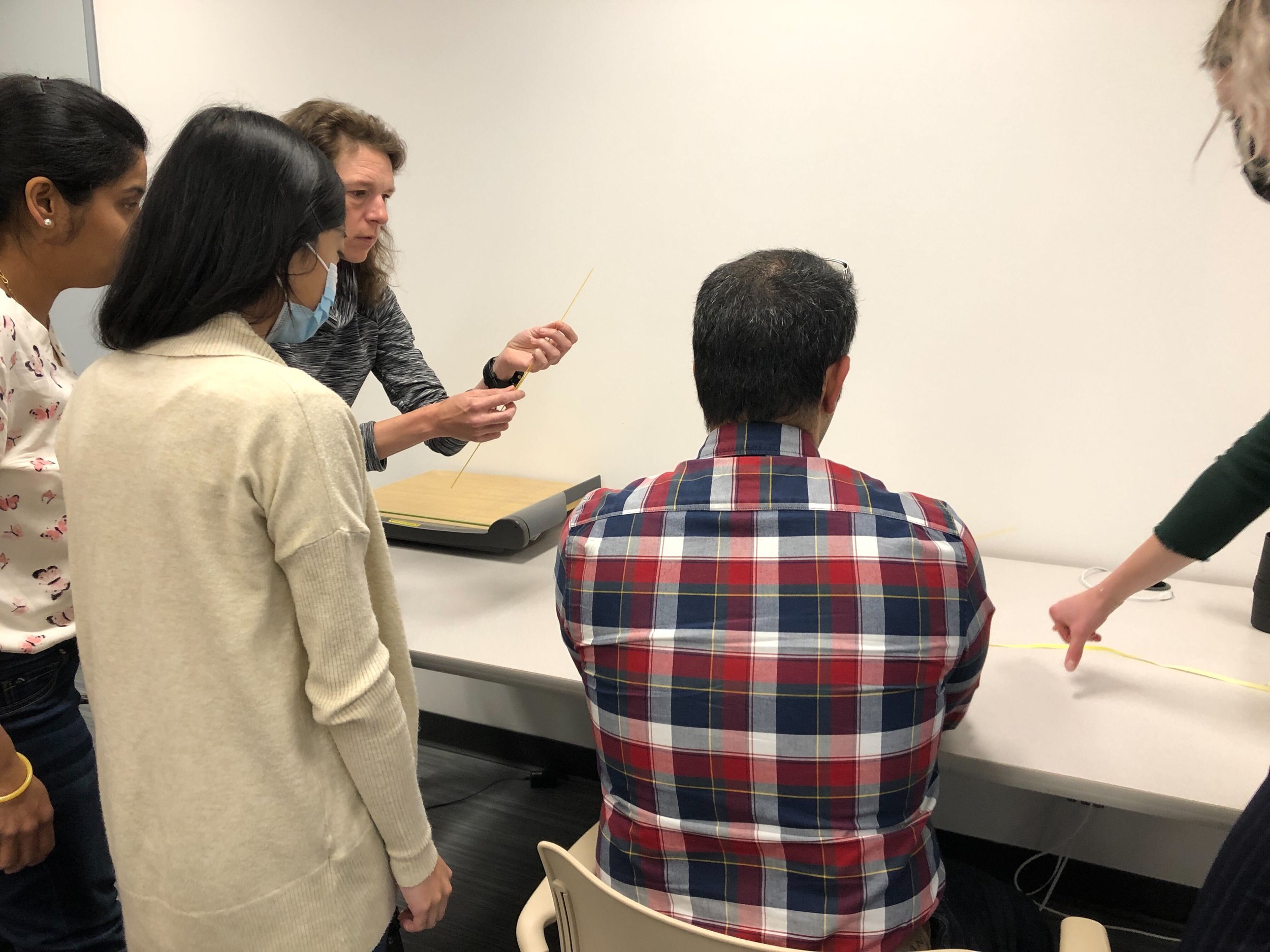
APEX Access Workshop - Building a Collaborative Research Environment

Rajni Pushpker, PhD student, engaging with the public at a community outreach event
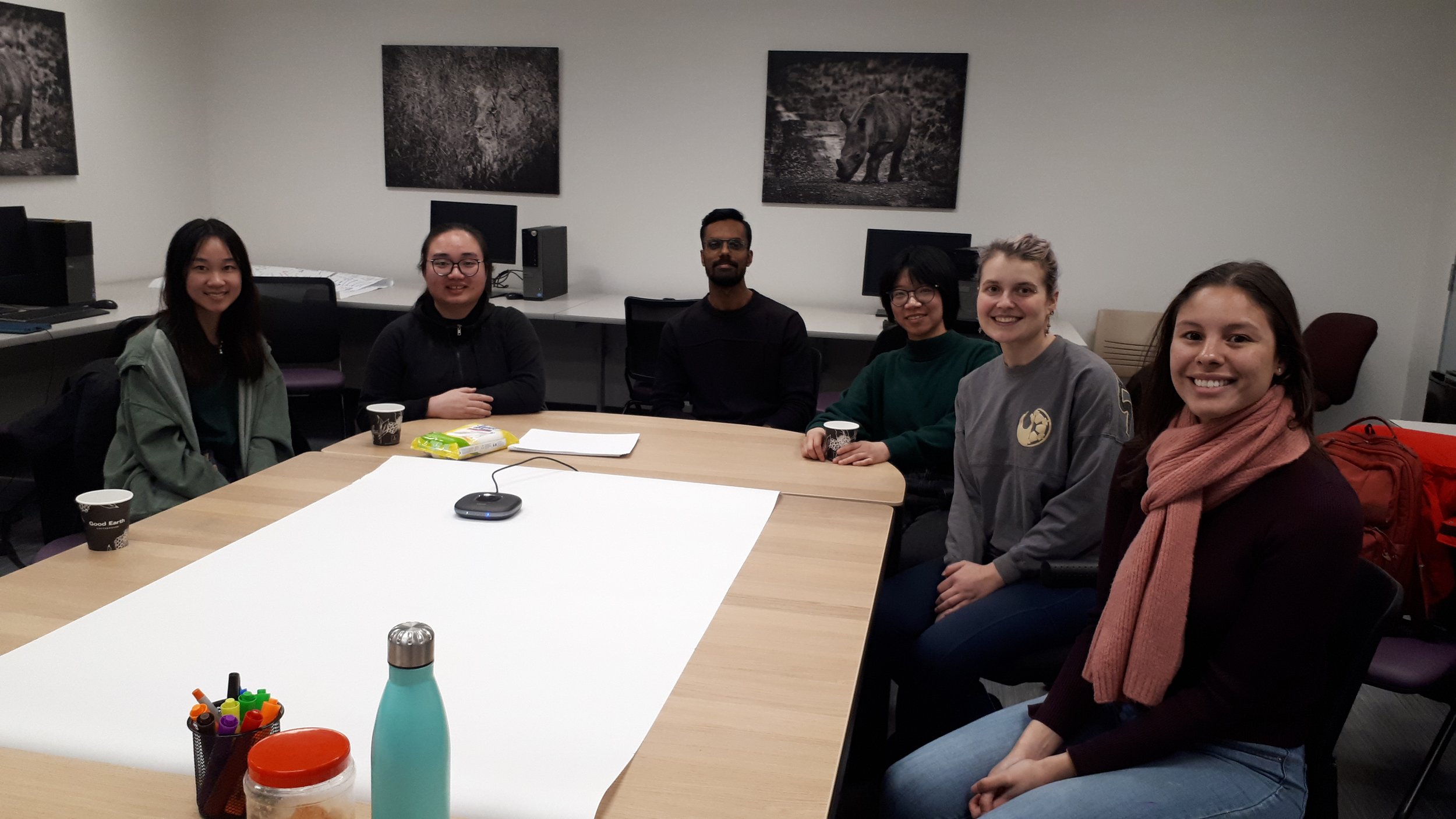
APEX Access Mentorship Program Winter 2023
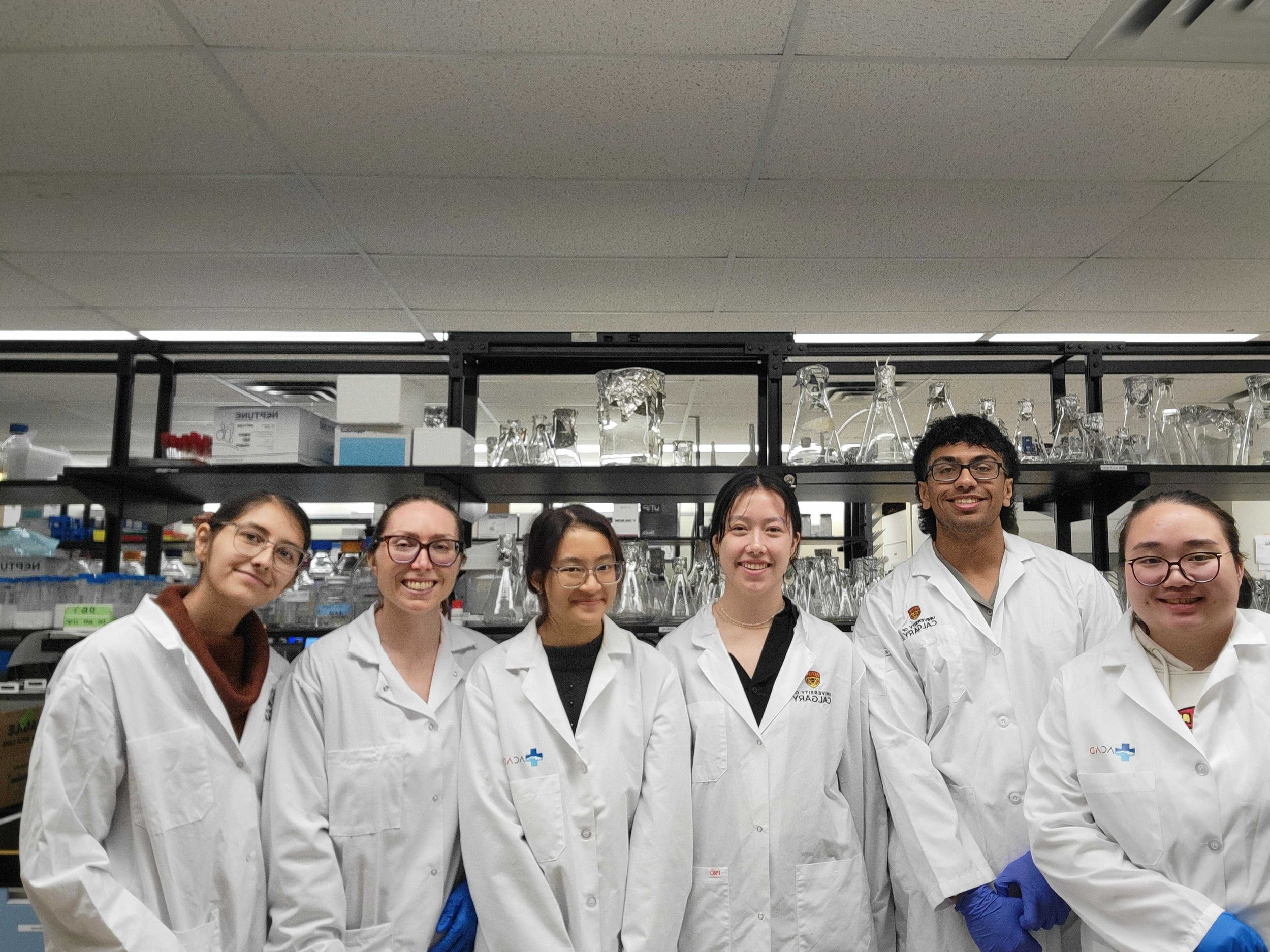
APEX Access and summer research students in the Lewis lab - Summer 2024

APEX Access Mentorship Program Kick-off event in Fall 2024

APEX Access mentees engaging in a discussion with one of our mentors, Troy Feneer, during a career talk in Fall 2024

APEX Access mentees engaging in an online discussion with one of our mentors, Anupama, during a career talk in Winter 2025
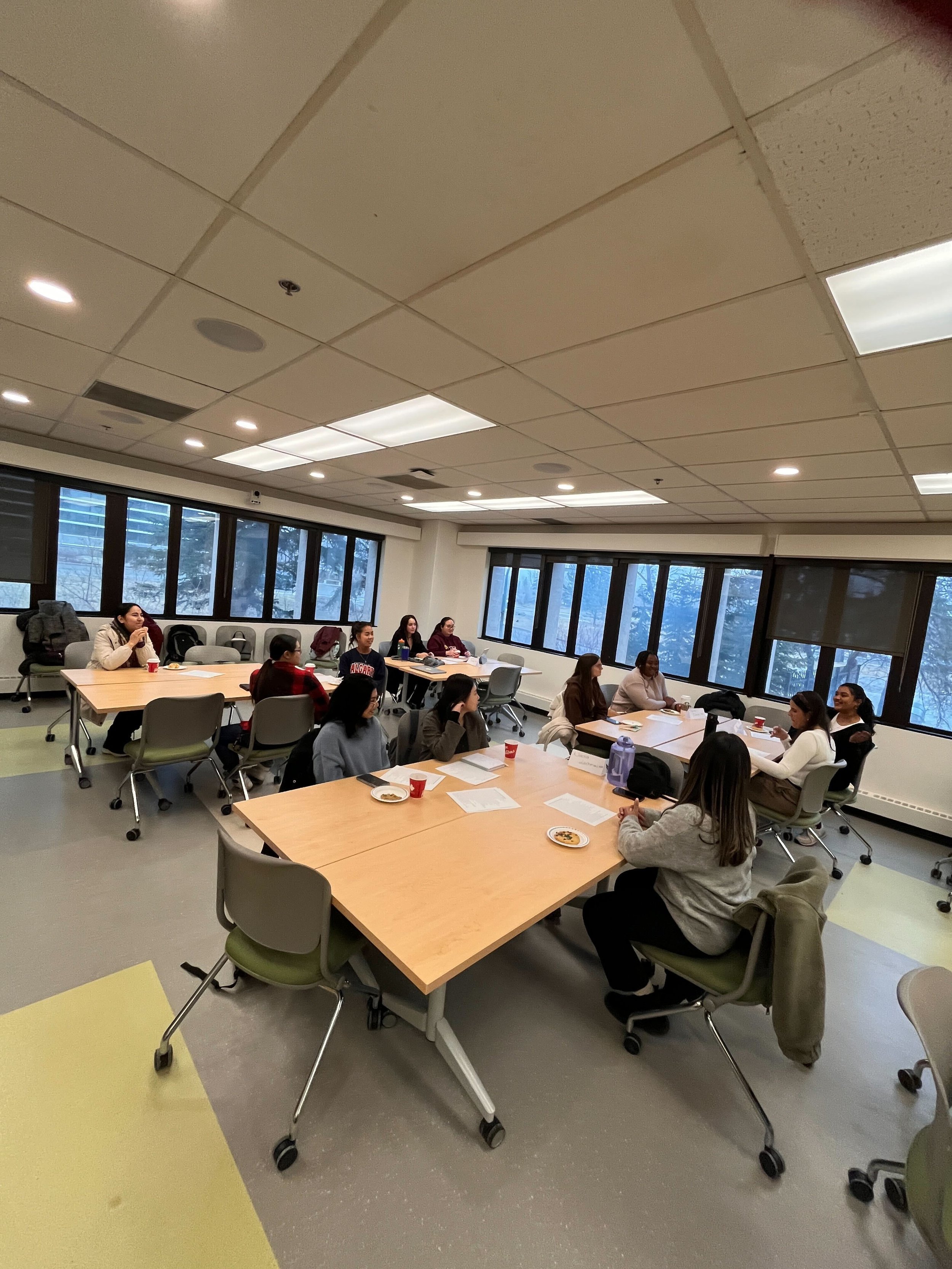
APEX Access Mentees in one-on-one conversation with Mentors during Mentorship Pod session in Winter 2025
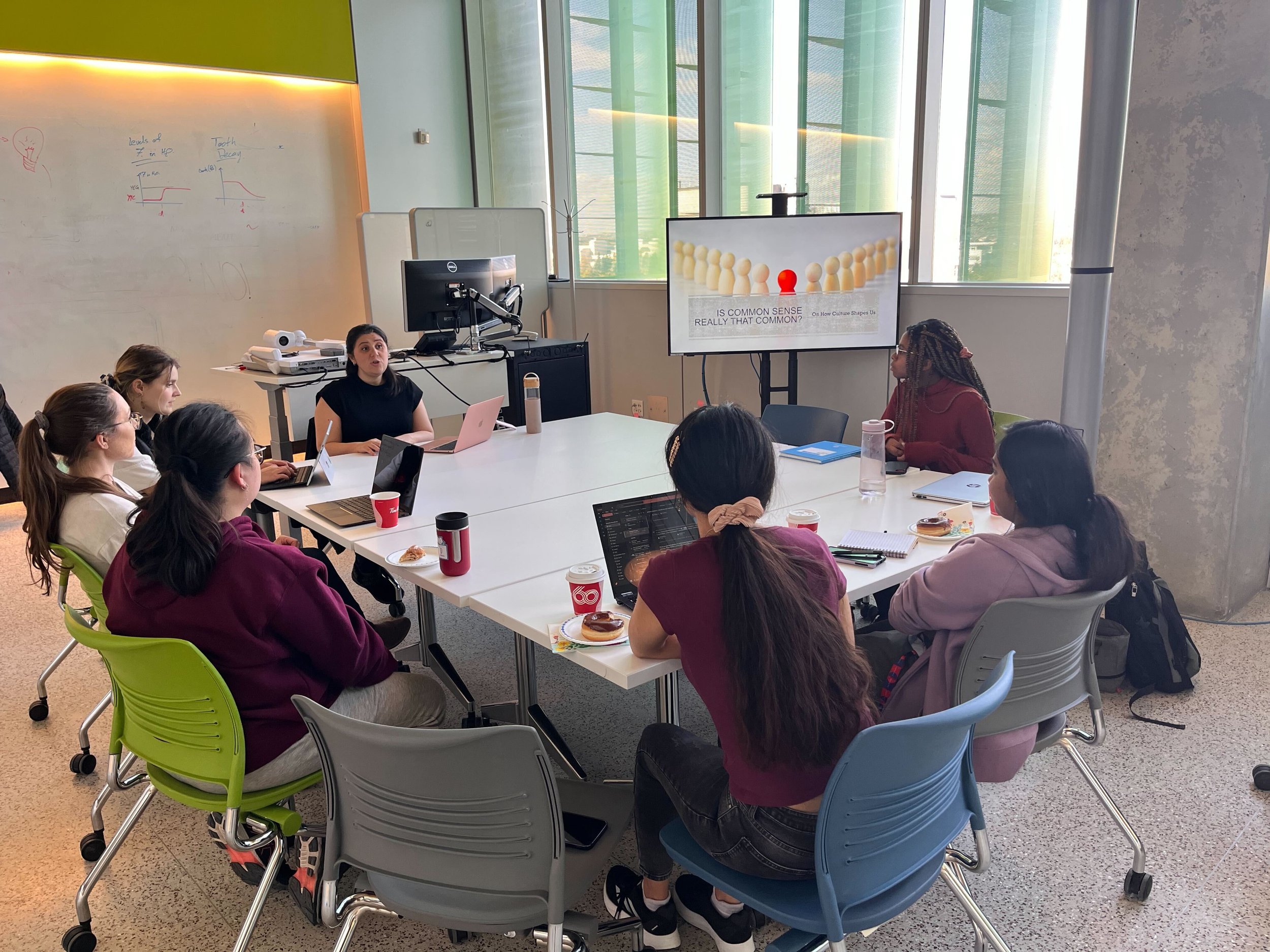
Participants at APEX Access Intercultural Communication Workshop Fall 2024 with Marija Drikic
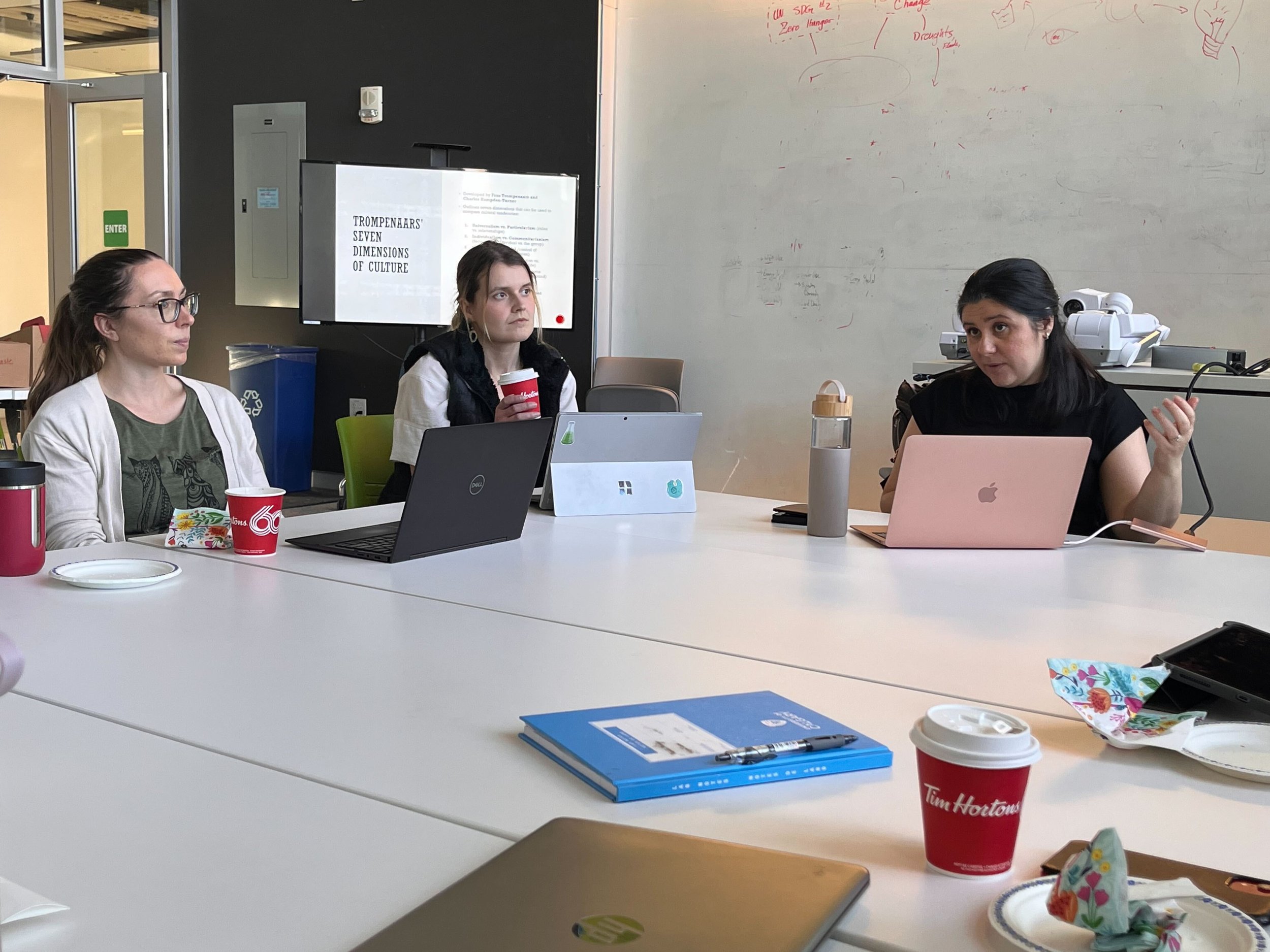
Participants at APEX Access Intercultural Communication Workshop Fall 2024 with Marija Drikic
Meet the Team
